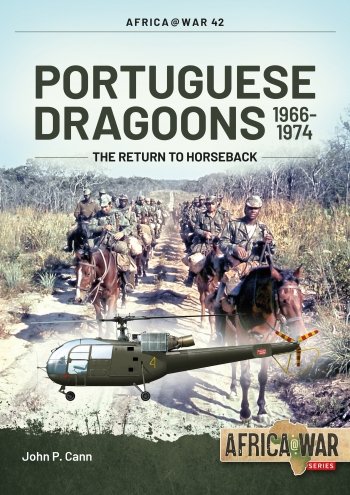-
Załączniki bezpieczeństwa
Załczniki do produktuZałączniki dotyczące bezpieczeństwa produktu zawierają informacje o opakowaniu produktu i mogą dostarczać kluczowych informacji dotyczących bezpieczeństwa konkretnego produktu
-
Informacje o producencie
Informacje o producencieInformacje dotyczące produktu obejmują adres i powiązane dane producenta produktu.HELION
-
Osoba odpowiedzialna w UE
Osoba odpowiedzialna w UEPodmiot gospodarczy z siedzibą w UE zapewniający zgodność produktu z wymaganymi przepisami.
Between 1961 and 1974 Portugal fought a war to retain its African colonies of Angola, Guinea-Bissau, and Mozambique. Collectively known as the Campaigns for Africa, the origin of the conflict stems from the post-World War II atmosphere of nationalism and anti-colonial fervour. The Angolan insurgency began in 1961, followed by unrest in Guinea-Bissau in 1963 and Mozambique in 1964. Portugal’s initial actions in Angola were based on foot-slogging by infantry, considered the best method of addressing an insurgency, not only to hunt the enemy but also to keep contact with the population. But in the vast areas of Angola – the majority of which was unsuited to wheeled vehicles – this tactical approach was too painful, and for Portugal the number of troops available was limited. The helicopter was a possible solution, but it was beyond Portugal’s finance resources and it had a tendency to fly over those areas where it was vital to communicate with the population and secure its loyalty. When in 1966 the enemy guerrillas sought a new front in eastern Angola, Portugal needed a force that could combine mobility over rough terrain with the ability to engage insurgents, while maintaining strong links with the population. One of the adaptive solutions to this challenge was found in the past: create horse cavalry units in the form of dragoons that were equally trained for cavalry or infantry service, just as their historical predecessors fought. In this particular case, adaptive tactics involved adjusting existing military methods and means from the traditional and available inventory to craft a solution that would deny eastern Angola to insurgents and support the population there. This story is about imaginative thinking that, instead of a ‘forced abandonment of the old’, led to a ‘resurrection of the old’.








